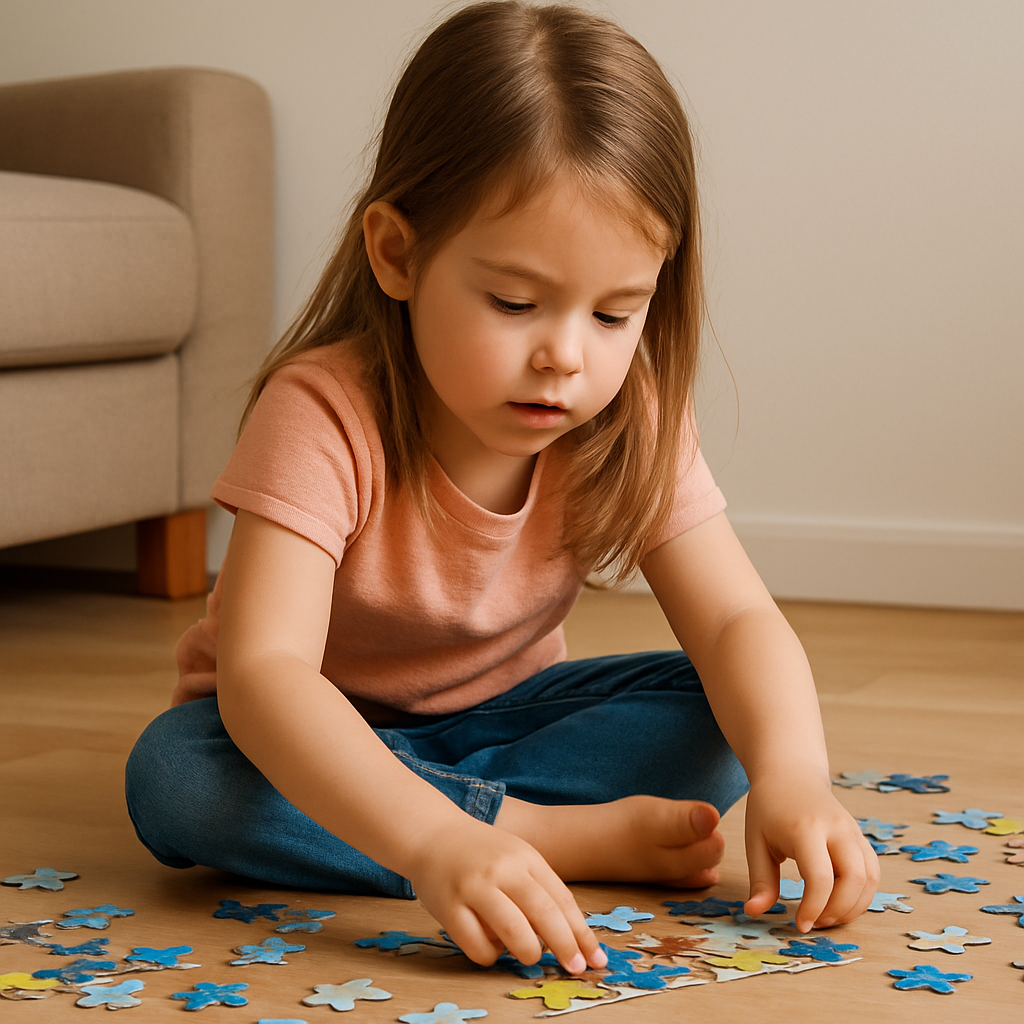
How Puzzle Play Enhances Children's Brain Development
Share
Engaging in puzzle play is more than just a pastime for children; it's a powerful tool that fosters various aspects of cognitive development. Research has consistently shown that puzzles contribute significantly to a child's growth in areas such as spatial reasoning, problem-solving, and fine motor skills.
🧠 Cognitive Development and Problem-Solving Skills
Puzzles challenge children to think critically and develop strategies to achieve a goal. This process enhances their problem-solving abilities and cognitive flexibility. A study by Wulandari (2018) demonstrated that children who engaged in puzzle play showed significant improvements in cognitive development compared to those who did not .
🔄 Spatial Reasoning and Visual Perception
Manipulating puzzle pieces requires children to recognize patterns, shapes, and how parts fit into a whole, which strengthens spatial reasoning and visual perception. Research from the University of Chicago found that children aged 2 to 4 who played with puzzles developed better spatial skills, which are crucial for success in STEM fields .
✋ Fine Motor Skills and Hand-Eye Coordination
Handling small puzzle pieces enhances fine motor skills and hand-eye coordination. This development is essential for tasks such as writing, tying shoelaces, and other daily activities. The act of grasping, moving, and fitting pieces together provides practical experience in controlling hand movements.
🗣️ Language Development and Social Interaction
Puzzle play often involves communication, especially when children work together or with adults. Discussing strategies, asking for pieces, and describing shapes or colors promote language development and social skills. This interactive aspect of puzzle play encourages children to articulate thoughts and collaborate effectively.
🎯 Patience and Goal Setting
Completing a puzzle requires patience and perseverance. Children learn to set goals, develop plans to achieve them, and experience the satisfaction of accomplishment. These experiences contribute to emotional development and the ability to handle complex tasks over time.
